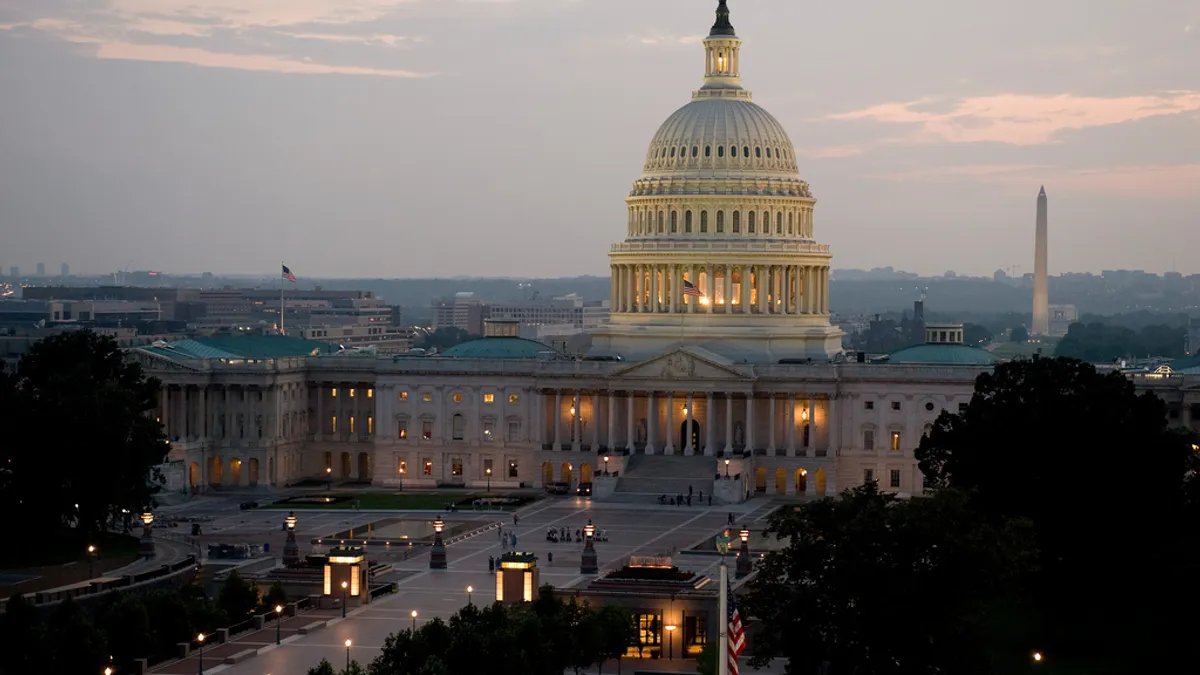When it comes to regulating for-profit colleges, Steve Gunderson, who heads the sector's leading trade group, and the Center for American Progress' Ben Miller disagree on a lot. But they are of the same mind on one thing: Regulatory "ping pong" doesn't help anyone.
"Ping pong" was a phrase Gunderson used, speaking on a panel Wednesday at the Center for Higher Education Accreditation's annual meeting in Washington, to describe the stark difference between how the Obama and Trump Education Departments have approached the sector. And as different as the last two years have been from the eight that preceded them, there's no guarantee of continuity from here.
"You tell me what's going to happen in 2020, and I'll tell you what will happen (to the sector) in the next five years," said Gunderson, who is president and CEO of Career Education Colleges and Universities (CECU).
Even through the remainder of the current Trump administration, there is little regulatory certainty. Betsy DeVos' Ed Department has delayed and looked to kill key Obama-era rules for the sector, including on borrower defense and gainful employment, only to miss a deadline to deliver its final regulations. This fall, it was forced by a court to honor the previous borrower defense rules.
Meanwhile, the department has indicated it plans to go back to the drawing board in its borrower defense rewrite. It is currently undertaking a massive overhaul of the department's rules on accreditation, which could also lead to broad changes in the for-profit sector.
"You tell me what's going to happen in 2020, and I'll tell you what will happen [to the sector] in the next five years."

Steve Gunderson
President and CEO, Career Education Colleges and Universities.
Miller, who is senior director for postsecondary education at the Center for American Progress, also acknowledged that the uncertainty helps no stakeholder group. Adding to the uncertainty, he said, is that the department's ongoing negotiated rulemaking on accreditation could be partly or largely undone if Congress were to reauthorize the Higher Education Act this year. "They could be redoing a ton of this stuff in a year," he said.
But Miller is skeptical of the current Ed Department's regulatory proposals to date. Regarding the negotiated rulemaking on accreditation, he said the agency has "an inability to articulate a goal beyond some vague notion of innovation," which in his view could imperil students.
"There is a real risk in a ton of schools ... bypassing the system of quality assurance we have now," that could lead to "a bunch of people coming in, with no track record, no guardrails," Miller said.
In addition to policy, the sector faces sharp market challenges. The recession yielded a "tsunami" of enrollment growth as students returned to college to pick up new skills in a tight labor market, Gunderson said. He noted that prompted for-profits to increase capacity, signing long-term leases along the way.
Changes in enrollment patterns created a crisis for many schools, he explained, as they were left with steep operating costs that tuition revenue couldn't match. Shrinking enrollment roils the industry to this day, with large chains to fold including Education Corporation of America and Vatterott, both of which faced enrollment declines as well as accreditor action over management issues and student outcomes.
"There's going to be more consolidation," Gunderson said.
The years of large for-profit closures, including ITT Technical Institute and Corinthian Colleges, also brought investigations by journalists, attorneys and government agencies into aggressive marketing and poor student outcomes at the institutions. "Unfortunately during that time, we had some very negative outcomes, which led to very bad PR. We live with that PR every frickin' day," Gunderson said.
Yet he touted the number of credentials the sector has turned out — more than 1 million over the past two years, according to Gunderson — as proof of its relevance. "If the sector doesn't exist, what's its replacement?" he said. He also argued the sector provides underserved groups access to higher education, which he thinks must be balanced against its lower graduation rates and other outcomes.
Miller, meanwhile, said the public needs a "clear concept of access" that accounts not only for enrollment but also for "what you actually get." As for the bad PR and political heat, especially from Democrats, Miller pointed to "a lot of unconscionable examples" of students being hurt, including by the abrupt closures of ECA and Vatterott. It is hard to look at those examples and not see "something fundamentally broken that needs to be fixed," he said.
Miller suggested the sector should self-regulate, holding itself to a set of principles that would take outcomes into account as well as personal liability for leaders at problematic schools.


















